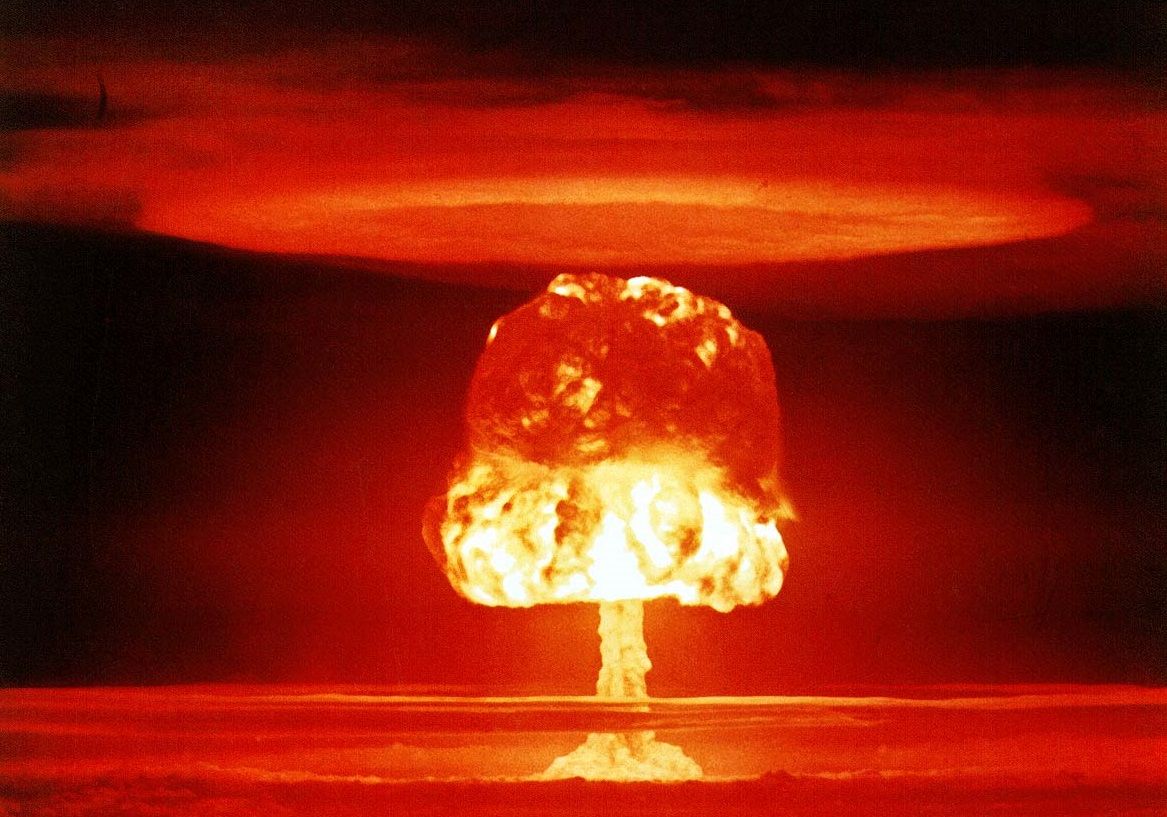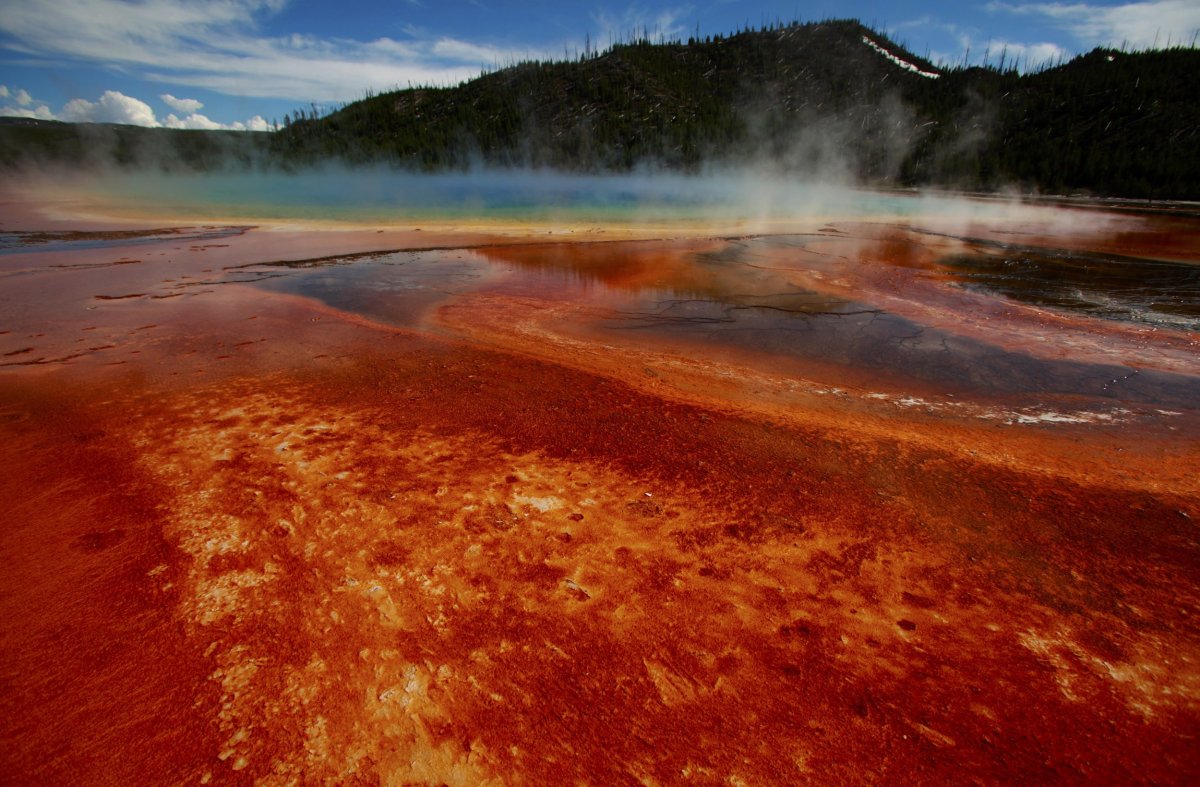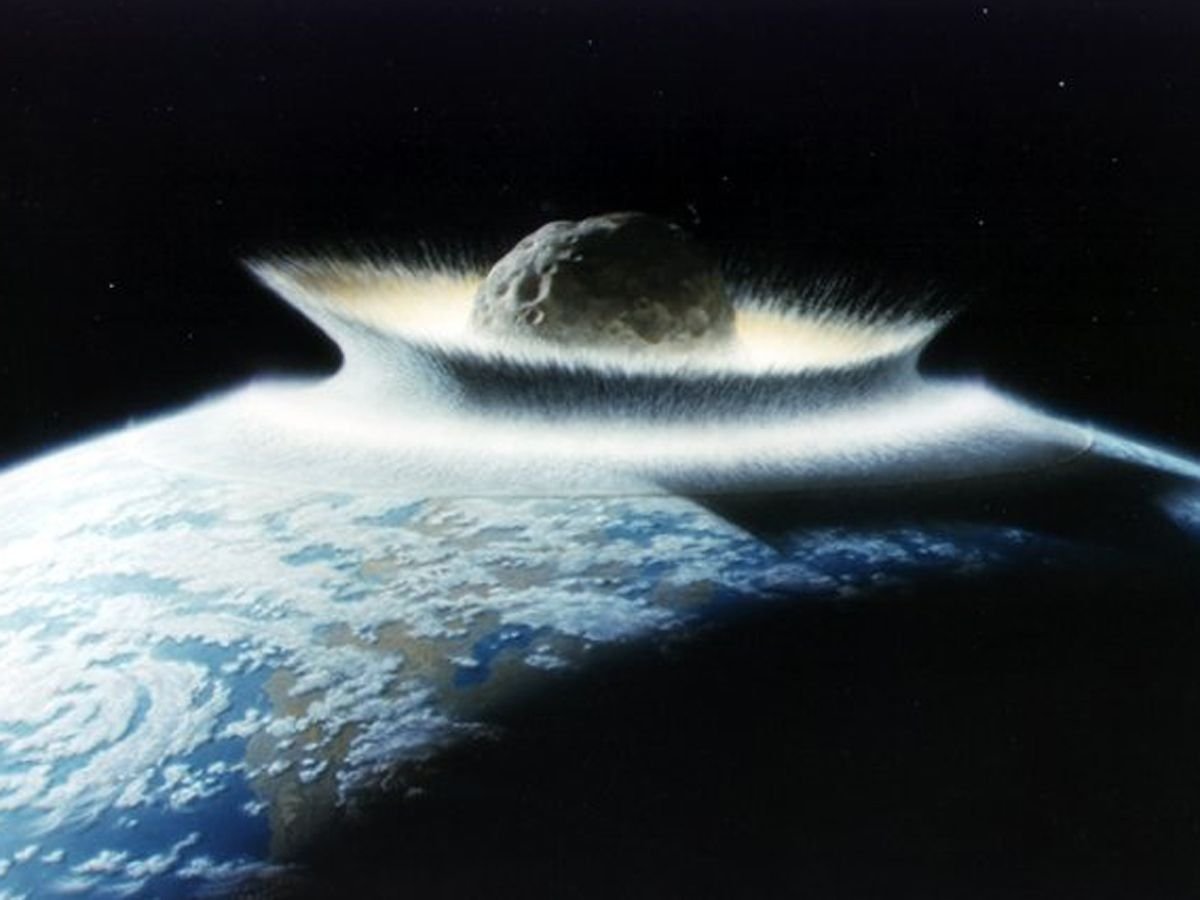
There is yet another prediction that the world is going to end on Sunday. Conspiracy theorists are reportedly claiming that on November 19, a "large planetary object called Nibiru" will destroy the Earth.
Of course there's no reason to believe this is the case, though tabloids are reporting story after story that Nibiru may bring about the apocalypse. A fixation with the apocalypse has never been too far off from the public consciousness. And in 2017, fears about nuclear escalation have propelled that obsession into a more acceptable sphere of public discourse.
So although the world will, in all likelihood, still exist on November 20, here are just three scenarios, in no particular order or degree of likelihood, that have been thought of as potential winners of the great apocalypse bracket.
Yellowstone Supervolcano

The volcano at Yellowstone national park is periodically the subject of apocalypse stories in the news. When asked why that is, geologist Christy Till told Newsweek she thinks "there's a tendency to associate Yellowstone with death and destruction." That tendency may come from the seemingly high frequency of earthquakes that take place at Yellowstone national park. And to be fair, the idea of a giant pool of lava lying dormant under the national park is a little disconcerting.
But the supereruptions that are feared and sometimes incorrectly reported as imminent events have historically happened hundreds of thousands of years apart. Perhaps the fear of the consequences of such a supereruption, including a blanket of ash that could imperil life on Earth if (keyword: IF) such an event came to pass, makes it so gripping. And, if and when one does appear to be developing, odds are the USGS (United States Geological Society), which monitors Yellowstone like a hawk, will have more than a fair bit of warning.
Nuclear War
As Peter Beinart writes, fear of all-out nuclear war, believed to have been relegated to the generations that lived through the Cuban Missile Crisis and the cold war, have entered back into public discourse.
The situation is fraught and nuanced, and as Beinart writes, devoid of any real historical precedent:
"Nuclear-weapons powers have very rarely engaged in direct military conflict; setting aside the many U.S.-Soviet proxy battles during the Cold War, the only precedent is brief, non-nuclear war clashes between China and Russia in 1969 and India and Pakistan in 1999. A nuclear war—in the sense of an exchange of nuclear weapons between countries—has never been fought. History is thus of limited help in understanding the stakes of the current standoff between the United States and North Korea. As a result, nobody's quite sure what to make of the Trump administration's rhetoric, let alone the Kim government's blustery warnings of imminent nuclear armageddon."
Giant Asteroid

Any mention of asteroids seems to conjure the idea that they're about to hit earth (they're not!). But even if asteroid strikes are unlikely (and almost certainly not going to destroy all life on Earth) they've had some pretty big consequences for our planet in the past. Most famously, they were the cause of the mass extinction that wiped out all the dinosaurs. Recent research showed that the asteroid had only a 13 percent chance of exterminating the dinosaurs, which it did.
Last year, NASA and FEMA held a series of joint exercises to prepare for the hypothetical possibility of an asteroid striking Earth.
"It's not a matter of if—but when—we will deal with such a situation," Thomas Zurbuchen, Associate Administrator for NASA's Science Mission Directorate in Washington said in a NASA press release. "But unlike any other time in our history, we now have the ability to respond to an impact threat through continued observations, predictions, response planning and mitigation."
And so far, no surveillance systems have turned up any sign of Nibiru.
Uncommon Knowledge
Newsweek is committed to challenging conventional wisdom and finding connections in the search for common ground.
Newsweek is committed to challenging conventional wisdom and finding connections in the search for common ground.
About the writer
Joseph Frankel is a science and health writer at Newsweek. He has previously worked for The Atlantic and WNYC.
To read how Newsweek uses AI as a newsroom tool, Click here.








